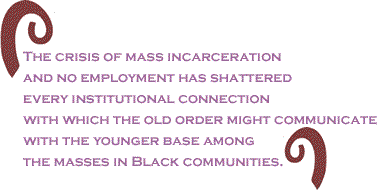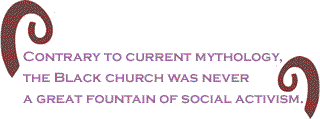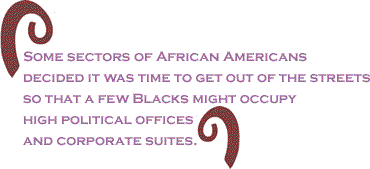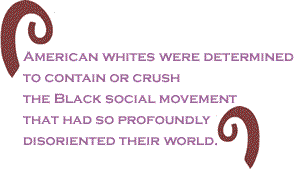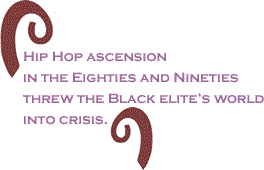
|
|||||||||||||||||||||
 |
|||||||||||||||||||||
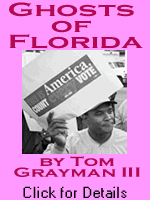 |
|||||||||||||||||||||
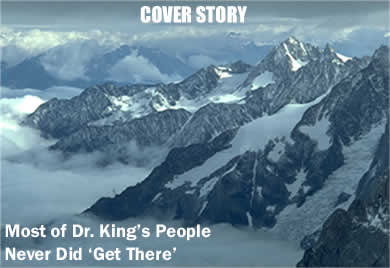 |
I just want to do God's will. And He's allowed me to go up to the mountain. And I've looked over. And I've seen the promised land. I may not get there with you. But I want you to know tonight, that we, as a people, will get to the promised land. – Dr. Martin Luther King Jr., in Memphis, April 3, 1968 – the eve of his assassination. Dr. King wasn’t talking about civil rights or voting rights legislation when he gave the last speech of his life, that rainy night in Memphis. With the exception of the Fair Housing Act then awaiting action on Capitol Hill, the legislative demolition of Jim Crow was already complete. (Lyndon Johnson pushed the bill through Congress a week after the assassination as a kind of memorial to King.) So, what was that metaphorical “promised land” that King saw from the mountaintop, and how many Black folks have managed to “get there” in the 37 years since his death? We know that King sought a world free of the “triple evils” of racism, economic exploitation and war – that his was a global vision that looked far beyond the battles against Jim Crow, which were all but won by 1968. King’s last public address was, in fact, a post-civil rights speech. But the defeat of legal segregation and whites-only ballots was just one leg in a long journey to “the promised land.” The movement had much more work to do. “Let us rise up tonight with a greater readiness,” King urged the crowd at Mason Temple. “Let us stand with a greater determination. And let us move on in these powerful days, these days of challenge to make America what it ought to be.”
Never for a moment did King believe that the mass movement he led had outlived its usefulness. The human and labor rights of 1,300 Memphis sanitation workers hung in the balance, and mass action and sacrifice were necessary to set things right. He specifically challenged the many local ministers in his audience “to develop a kind of dangerous unselfishness.”
King knew his fellow preachers well. Contrary
to current mythology, the Black church was never a great fountain
of social activism.
More often, suspicious and small minded The SCLC traveled by invitation only. King was glad to be invited to the small city of Albany, Georgia, in 1962. In 1964, the movement was stuck again, despite the huge March on Washington the year before. Dr. King got himself arrested at a whites only restaurant in St. Augustine, Florida, a backwater town where half of the Black ministers wished King had stayed away. But the people wanted a movement, wanted to follow King, or Malcolm, or the young men and women of the Student Non-Violent Coordinating Committee (SNCC) – somebody! Congregations demanded that their ministers become “relevant” – as King put it – to a changing world. The number of activist ministries increased. But most remained politically irrelevant throughout the Sixties, never part of the movement that the Black church now collectively claims as its own. Black Elite Ascendance
King believed that masses of people in motion could accomplish miracles – God’s work on Earth: “And I see God working in this period of the twentieth century in a way that men, in some strange way, are responding – something is happening in our world,” said King on April 3. After his death on April 4, 1968, much of the elite and soon-to-be elite of Black America accepted the verdict of the rifleman, and declared the movement over. Now that Blacks had the vote, North and South, some sectors of African Americans decided it was time to get out of the streets so that a few Blacks might occupy high political offices and corporate suites. The masses would be summoned every few years at election time, or to celebrate the latest entrepreneurial acquisition or corporate promotion among the thin slice of Blacks who had, indeed, been set “free at last” by the civil rights gains of King’s unfinished movement. Maynard Jackson captured city hall in King’s hometown, Atlanta, in 1973, and quickly moved to crush a strike by garbage workers, and tried to break their AFSCME union local – the same union that had organized the sanitation workers in whose service Dr. King had died, five years earlier. Mayor Jackson concentrated his best efforts on getting Black businessmen contracts at the Hartsfield Atlanta International Airport. By default, as a consequence of white and
capital flight, Blacks had become majorities or near-majorities
in many big Other, youthful sectors of the broad Sixties movement, sprung from the ashes of burned and shrunken cities, took citizenship rights and Black pride to their logical conclusions in their own, mostly northern neighborhoods, and were soon targeted for extermination or lifetime captivity. Many among the Black “striving” classes ridiculed the victims of Cointelpro and other state gangsterism, believing that fulfillment of their own pent-up aspirations – now within the realm of possibility thanks to a movement in which they may not have participated in any way – was the prize for which so many others died. For them, “movement” meant individual, or class, upward mobility. “The Race” would be uplifted by their shining example, a more achievable goal than jobs and justice for the masses of Black folks. The innocent poor applauded each individual advancement of these representatives of “The Race” – as they had always done, not understanding that the group contract had been broken.
The mass movement was shut down by Blacks after King’s death to allow those African Americans better equipped to take advantage of new opportunities in a more open society to do so without the clutter of protest from people whose suffering stemmed from fundament power relationships in the United States and the world. The Black strivers called a unilateral truce – which atrophied to surrender – to conduct their electoral political campaigns and business ventures. Those activists who did not honor the truce were decimated by the same white forces that killed King.
The white backlash against Black assertiveness (when was there not a white backlash?) fell like a mountain on the Black urban poor. The white consensus accepted that some African Americans might get to become mayors and congresspersons, or act in sit-coms and movies, but the mass of African Americans faced lock-down if they “stepped” to white power. Mass Black incarceration became national policy. The U.S. prison population numbered 300,000 in 1970, less than 40 percent non-white. By 2000, more than 2 million prisoners inhabited the American Gulag, about half of them African American, 66 percent people of color. Mass Black incarceration was the general white population’s answer to the Sixties movement. We can say this with certainty, since the vast racial disparities in imprisonment obtain in every state and locality in the U.S., without exception, and all data show that the movement to put ever increasing numbers of Blacks behind bars began in the early Seventies. Naturally, a horrific cycle of social disintegration was set in motion in Black communities, nationwide. But one would not know it from the popular Black music of the late Seventies, inspired by the rising fortunes of Black businessperson-musicians, producers and media owners. “Ain’t No Stoppin’ Us Now – we’re on the move,” they proclaimed – and many of us wanted to hear it, even if it were only true for a few. “Celebrate Good Times, come on…it’s a celebration.”
Black youth could stand this insane crap no longer. They were rotating in and out of jail, jobs were long gone, yet the Black elite were celebrating. Hip Hop was invented, thanks to newly available, cheap technology. The social divide that the Black elite had welcomed as the terms of conditional acceptance into the larger society, was finally answered by a mass Black youth cultural response: fuck you and your bougie music, too. The Black leadership classes were shocked
at the crude rebuff by the cultural shamans of the Black masses,
who with their numbers,
energy and percolating genius had earlier fueled the movement
that enabled the elite’s breakout from the common Negro condition.
Hip Hop ascension in the Eighties and Nineties (code for low
class Black folk “actin’ out”) threw the Black elite’s world
into confusion. The elite response has been insufficient, and
dishonest. Any fool can see that Black people are in crisis,
felt most keenly by the youth, yet elite leadership offers nothing
but condescension and slogans that they, themselves, betrayed
in the aftermath of King’s death, when the movement was disbanded.
As
Social change is made by youth, in all societies. The task of the influential sectors of Black America is to do what King thought necessary on April 3, 1968, “to develop a kind of dangerous unselfishness.” Make resources available to young people eager to organize and uplift their people. The Black elite must do this for their own salvation, because the crisis of mass incarceration and no employment has shattered every institutional connection with which the old order might communicate with the younger base among the masses in Black communities. New connections must be established, under liberating conditions. Trust the flow of history, and the goodness of your children – as did Dr. King, in the last public speech of his life, in Memphis: “When people get caught up with that which is right and they are willing to sacrifice for it, there is no stopping point short of victory.” |
| January 20 2005 Issue 122 |
|||||||||
|
|||||||||
|
|
|||||||||
| Printer Friendly Version | |||||||||
 |
|||||||||
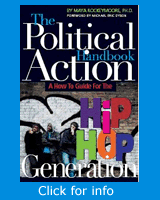 |
|||||||||
 |
|||||||||
| |
|||||||||
| |
|||||||||





















